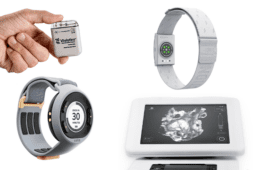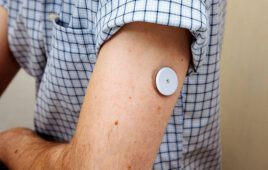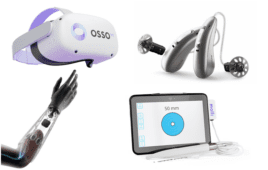 “If I asked you what the Uber app is, what would you say?”
“If I asked you what the Uber app is, what would you say?”
That’s the question Brent Vaughan, the CEO of Cognoa recently asked me. I said something obvious, like, “It’s a cheap, convenient ride.” He invited me to think of it in a different way.
“It is really a peace of mind app, don’t you think?”
Everything about Uber is designed to decrease your stress, he said, noting that from the moment you use it, it tells you how long it will take, how much it will cost, and then once you confirm, it tells you the name of the driver and the make and model of the car. You know everything and it alleviates anxiety.
For Vaughan, that level of design is something all app makers, even those in the medtech industry, should strive to achieve. Cognoa’s app is designed to help parents look for signs of autism and developmental delay, for example. Research shows that early diagnosis (before age 3) leads to better treatment and better outcomes for children, but often the disease isn’t diagnosed until age 4 or 5.
The app had the potential to provide significant value, but participation in the beta launch didn’t fully take off until a comment from a user gave Cognoa some insight into what drives parents. She told Cognoa that the app helped her understand if her child was on track. That was the lightbulb. So Cognoa designed a marketing platform to position its app as, “How to tell if your kid is on track.” Using this method, Cognoa was able to provide that peace of mind for parents, provide an early alert system for kids at risk, and create a data pool for treatment and research.
 Learn or fail
Learn or fail
Navigating the healthcare system and good design are both learnable skills, says Vaughan. And when building your team, he says it is important to find people who understand both. “You can’t take a low-engagement product and dress it up with design.”
Likewise, data science is not something that can be faked. “It’s easy to say you are going to collect data, but it is almost impossible if data science is not in your company’s DNA. The process requires that you understand structure and discrete analysis. You need to know what to ask and when to ask it,” advises Vaughan. “Then you need to know what to do with all the data you’ve collected.”
In product design, people often say, “fail fast.” Vaughan says, that isn’t quite right: “You don’t want to fail fast, you want to learn fast.”
In software design, developers use LEAN and agile principles for everything, even marketing. “Everything is minimal viable product,” explains Vaughan.
That means designers and engineers have to be OK with a less-than-perfect product. That doesn’t mean it’s wrong or unsafe – it means letting users inform the final functionality.
One way users can inform functionality is to allow them to register interest in specific features before they are built. At another company, the team had a “should” feature on a list that was not being prioritized based upon perceived lack of need. So the company decided to put in a “Click here to get this feature” on its website. “They were able to provide the feature manually and the team decided that if they got 100 clicks, they would build it,” Vaughan says. Sometimes, he says, you just have to ask. But you have to be smart about asking: You can’t ask what you aren’t willing or able to provide.
“They ended up with over 100 clicks and built the feature. But if they had only gotten a handful of requests for it, they still would have needed to provide that the functionality to those customers in some way. If you promise something you have to deliver.”
But first, get paid
When it comes to data science in healthcare, the first step is to figure out a strong compensation model. Vaughan says that’s one of the most difficult tasks a team will confront.
Smart companies will spend time figuring out a path because the classic reimbursement model may not work for data, he says. But there are lots of ways that data scientists can approach pay structures. For example, a company developed a pre-diabetes weight loss app. Instead of going through a traditional path into physicians, it went through an employer payer system. The app makers were able to tap into an employer’s need to improve workers’ health, because there are real expenses tied with employee illnesses, such as lost productivity and higher turnover.
Data science software for healthcare fits very nicely with payer models that are motivated to provide tools that prevent disease. Payers like Kaiser and Blue Cross see the ROI with coaching apps that aim to reduce the onset of diabetes, for example.
One thing Vaughan cautions against is asking customers or potential customers about how to get paid – it’s up to you to create the value proposition.
“Never ask customers ‘What will you pay for?’” he says.




